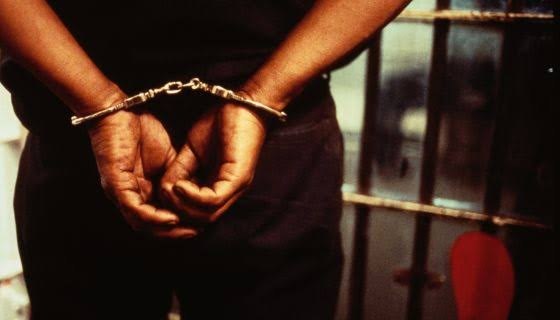Ebonyi Couple Arrested in Anambra for Selling Their Children Amid Crushing Poverty
In a nation where poverty has become an unrelenting monster gnawing at the foundations of family life, the recent arrest of Mr. and Mrs. Vincent Mbam in Anambra State has shocked the conscience of Nigerians. The couple, originally from Ogboji-Ezzaegu in Ishielu Local Government Area of Ebonyi State but living in Oba, Idemili South LGA of Anambra, were arrested for allegedly selling three of their six children over a five-year period—between 2019 and 2024.
According to authorities, the Mbams were picked up by operatives of the Special Anti-Touting Squad (SASA) at the Onitsha area office after a concerned neighbour tipped off the agency. The neighbour, whose name has been withheld for safety reasons, suspected that something was amiss when only three of the children remained in the household, and the parents appeared evasive about the whereabouts of the others.
The shocking revelation has thrown the small community of Oba into deep moral introspection, raising disturbing questions about economic desperation, social failure, and the dwindling sense of communal responsibility.
When SASA operatives confronted the couple at their modest one-room apartment located in a densely populated part of Oba, they initially denied the accusation. But after hours of questioning and presented with preliminary intelligence, 57-year-old Vincent Mbam broke down in tears. His 48-year-old wife, Nnenna, followed suit.
“Yes, we did it. We sold them…,” Vincent reportedly said during interrogation. “It was not because we wanted to be rich. We were suffering. We had no food, no job, no support. I am not proud of what we did. It was the devil.”
Nnenna, a visibly worn-out woman whose facial lines reflect years of hardship, narrated their ordeal: “Sometimes we go two days without food. My husband is a carpenter, but he stopped getting jobs since 2018. I sell vegetables in the market, but what do I earn? N500 a day? We borrowed until no one would lend us again.”
Police sources say the couple’s modus operandi involved using unlicensed child trafficking agents who approached vulnerable families and offered to “link them” with people seeking to adopt informally. All transactions were conducted in cash with no legal documentation.
The arrest has left residents of Oba in a mixture of horror and sympathy. While some condemn the Mbams outright, others see their actions as a tragic reflection of a broken society.
“I am still in shock,” said Mrs. Gloria Nwosu, a neighbor. “They kept to themselves, didn’t talk much. I used to see their children playing, then one day, fewer kids. I thought the rest went to the village.”
YOU MAY READ
Court Sentences Woman to Three Years’ Imprisonment for N14.5 Million Fraud in Lagos
Another resident, Mr. Joel Okechukwu, was more philosophical. “I won’t justify what they did, but how many people here have eaten twice a day this week? Hunger is killing people. Government has failed.”
At the local St. Thomas Catholic Church, Father Michael Obinna used the incident as the central theme of his Sunday sermon. “The family is under attack in this country,” he told worshippers. “When parents begin to see their children as merchandise, we must know we have reached the brink.”
According to the National Bureau of Statistics (NBS), over 133 million Nigerians live in multidimensional poverty. The Mbams are among them.
Vincent once had a flourishing carpentry shop in Abakaliki before moving to Anambra in search of greener pastures. He described the move as the beginning of their descent into hardship.
“I had clients, jobs, respect. But things changed after the lockdown. Nobody was building anymore. My tools were stolen. I came to Anambra to start again, but everything was harder than I expected.”
His wife Nnenna, who dropped out of school after primary six, began selling vegetables and local herbs. But even that was not sustainable.
“There were days I begged neighbors for garri. My children cried all night. I can’t explain the shame I feel.”
What makes the case particularly gut-wrenching is that the remaining three children—aged 12, 9, and 6—are now in the custody of the Anambra State Ministry of Women and Social Welfare.
Dr. Beatrice Akunna, a child psychologist in Awka, describes the long-term emotional damage that such trauma can have on children.
“These children are not just victims of poverty; they are victims of abandonment and betrayal. The psychological scars may last a lifetime. There will be trust issues, emotional instability, and possibly resentment towards their parents and society.”
According to a preliminary assessment by welfare officers, the children were undernourished, poorly dressed, and had not been in school for over a year.
Legal experts have weighed in on the matter. Barrister Nkemdilim Okoye, a human rights lawyer in Onitsha, said:
“This is clearly a violation of the Child Rights Act. What they did qualifies as human trafficking under Nigerian law, even if they were motivated by poverty. The law does not excuse criminal conduct based on economic status.”
Under the Trafficking in Persons (Prohibition) Enforcement and Administration Act of 2015, selling or buying children is a federal offense punishable by up to 14 years in prison.
Anambra State Police PRO, DSP Tochukwu Ikenga, confirmed the arrest and said investigations are ongoing to identify and apprehend the middlemen and buyers.
“The couple will be arraigned as soon as we complete our investigation. We are also working with other agencies to trace and rescue the children who were sold,” Ikenga said.
The Anambra State Ministry of Women Affairs, under Commissioner Mrs. Ify Obinabo, has promised a full investigation and rehabilitation for the remaining children.
“This is a heartbreaking case. We are doing everything possible to trace the three children who were sold. Meanwhile, the other children are safe and receiving care,” she told reporters.
Child-focused NGOs like Save the Future Initiative and ChildWatch Nigeria have also stepped in, demanding justice and long-term intervention.
“We cannot treat this as an isolated incident. There are thousands of families in similar conditions. The government must address the root causes: poverty, unemployment, and lack of social safety nets,” said Ngozi Ezeonwuka, Executive Director of Save the Future Initiative.
Sadly, this is not the first such incident in Nigeria. In April 2023, a woman in Abia State was arrested for selling her twin babies for N1.4 million. In 2022, a syndicate operating in Akwa Ibom was busted for buying babies from teenage mothers.
“These cases are becoming more frequent,” says sociologist Dr. Emmanuel Ogbodo of Ebonyi State University. “The traditional value of children as blessings is being replaced by economic desperation. If we don’t intervene fast, we’ll see a generation of parents turned into traffickers.”
In Onitsha’s bustling Upper Iweka, opinions are divided. Some vendors expressed outrage, others offered compassion.
“Mama Nkechi sold puff-puff for ten years to feed her children. Why didn’t she sell them?” one woman queried angrily.
But a commercial tricycle driver interjected, “Let’s not pretend we don’t know hunger. When your child cries and you have nothing to give, your head no dey correct again.”
Back in the SASA detention facility, Mr. Mbam reportedly weeps every night.
“I see their faces when I sleep. I hear them calling ‘Papa.’ I would give anything to take back what I did. If I knew someone would help us, I would never have done it.”
His wife sits silently beside him, often refusing food. Officers say she prays quietly for forgiveness.
They have requested that they be allowed to speak to their remaining children before facing arraignment.
The story of the Mbam family is a tragic reflection of a society in decay. While nothing justifies the sale of a child, it is also true that a system that allows families to reach such levels of despair is deeply flawed.
As the case moves from investigation to prosecution, Nigerians must confront hard questions: What kind of society allows parents to see their own children as disposable assets? How many other families are one unpaid rent away from crossing a moral line? And what must be done—urgently—to ensure that no child becomes a price tag?
This is not just a legal case. It is a mirror held up to a society standing on the edge.





